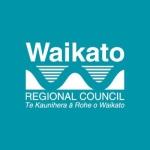Helicopter monitoring due to start for 2011-12
A new round of Waikato Regional Council helicopter monitoring to check on compliance with dairy effluent management rules is due to get underway shortly.
Helicopter monitoring is one of the council’s contributions to an ongoing agriculture industry effort aimed at a continuing improvement with compliance in the Waikato, said compliance and education manager Rob Dragten.
“We will be working with Federated Farmers, Fonterra, DairyNZ and farmers generally to make further gains on effluent management in the Waikato this season after last year’s much improved performance. Farmers wanting specific advice on the council’s rules can call 0800 800 401 or visit www.waikatoregion.govt.nz/forfarmers.
“Also, DairyNZ is offering a specialist effluent advisory service for farmers who have questions around the set-up and operation of their effluent system,” said Mr Dragten.
Federated Farmers Waikato dairy section chairperson Chris Lewis encouraged farmers to ensure their effluent systems were working well. “Waikato farmers are making big improvements on farm spending, with tens of thousands of dollars spent on effluent upgrades in the last few seasons, and fencing off streams and rivers. Federated Farmers Waikato was very happy with last season’s big improvement in compliance. We would like to remind farmers that we need to make sure effluent systems are working properly and managed by senior staff, or the owners themselves, so we continue to see an even better result this year.”
Fonterra, meanwhile, is continuing its “every farm, every year” inspection system to check effluent systems on dairy farms supplying the co-operative. “We are looking forward to working with the council on making further environmental gains in the Waikato this season,” said Fonterra’s environmental programme manager Charlotte Rutherford.
Mr Dragten said doing more to ensure compliance was important for environmental health as effluent management practices that contravene the rules can lead to excessive levels of nutrients and bacteria getting into waterways, posing a threat to human and animal health, as well as the general health of waterways.
The council is planning to check about 1000 of the region’s 4000 dairy farms using helicopters this season. Seven monitoring flights are planned, each taking in about 135 farms in randomly selected locations.
“It’s important for the sake of the health of our waterways that we work together with the agriculture industry to weed out any remaining poor effluent management practices in our region.
“We don’t want the very good work being done by the majority of farmers to be undermined by those who aren’t complying.
”We won’t shy away from taking enforcement action where appropriate against those found to be breaking the rules.”
Last season’s results from helicopter monitoring of farm compliance with permitted activity rules, as well as on the ground checking of consented effluent systems, showed just 12 per cent of properties were significantly non-compliant, compared to 27 per cent the year before.
Significant non-compliance is generally described as a discharge of effluent that has either entered water, or is at high risk of entering water, such as unauthorised direct discharges of effluent to drains and streams, and excessive application of effluent on to pasture.
Sixty-six per cent of farms were fully compliant with the rules in 2010-11, up significantly from 51 per cent the year before. Others were mostly compliant or partially compliant.
“Farmers deserve a great deal of credit for lifting their performance on compliance last season and we will be really pleased if further gains can be made in 2011-12,” said Mr Dragten.
“Farmers, the council, Fonterra, DairyNZ and the agriculture industry generally put in a lot of effort to improve compliance last year and the challenge now is to build on this progress.”
